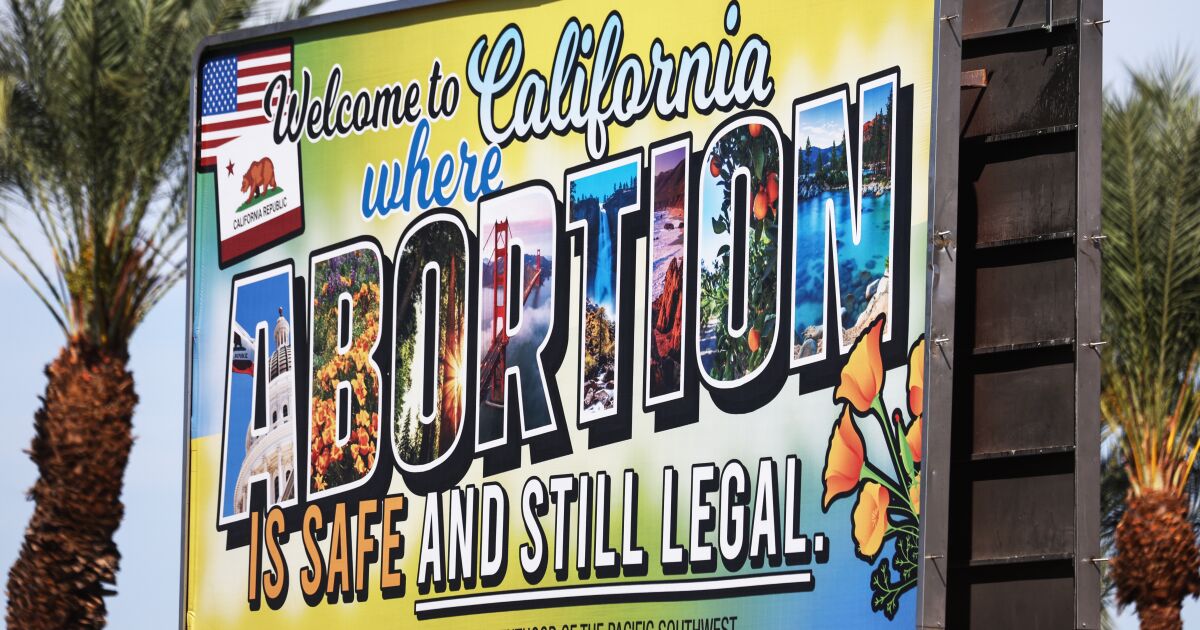Don’t let Hamas kill peace along with the peacemakers

In the long litany of death notices that fill my Facebook feed — the friends and family of Israelis I met years ago as the lone Egyptian American studying at Tel Aviv University — one entry popped out: Ofir Libstein.
I met Ofir exactly one year ago when I visited Israel at the invitation of Sharaka, a nongovernmental organization that promotes peace and normalization among young people in the Middle East and North Africa.
Chairman of the Sha’ar HaNegev Regional Council in southern Israel, Ofir proudly shared his vision for improving his community by helping Palestinians in neighboring Gaza obtain permits to work in agriculture and a new industrial zone in his kibbutz, Kfar Aza, and throughout the area.
“It is good for people-to-people peace,” I clearly remembering him saying.
Ofir, age 50, and his 19-year-old son, Nitzan, were cut down Oct. 7 by Hamas terrorists who swarmed his kibbutz by land and air.
Ofir’s killers were poisoned by extremist Hamas indoctrination that portrays Israelis as the embodiment of evil — how else could they have carried out such a heinous attack?
Many of Israel’s detractors are similarly consumed by a black-and-white, good-versus-evil worldview that sees Israel as “an apartheid state.”
As an Arab who has lived and studied in Israel, I do not.
Israel is more diverse and pluralistic than its critics would have us believe.
I was in Israel just a month ago, and the people’s hospitality and warmth continued to astound me.
I was most struck by the amount of Arabic I heard in Tel Aviv.
Palestinians from the West Bank and Gaza, and even Arabs from Sudan, were everywhere, working in construction, supermarkets, bars, restaurants and shopping centers.
Wealthy Palestinian women, many wearing traditional headscarves, shopped in the malls and strolled through the tony hotel district.
Many spoke fluent Hebrew with an Israeli accent.
An Arab-Israeli woman in Jaffa helped me pick out a wine as a gift for the Jewish family who hosted me for Rosh Hashanah dinner.
Ahmed, who sells the traditional Arab knafeh dessert on Tel Aviv’s Hayarkon Street, told me about his former work as a political activist in Ramallah, the Palestinian Authority’s capital, that often took him to Cairo.
It gave me hope to see Jewish Israelis felt safe in the presence of so many Arab workers and tourists.
As an Egyptian, understanding Jewish anxiety didn’t come naturally.
I first visited Israel in 2014 shortly after that summer’s war with Hamas.
Early in my stay, an Israeli confided that consecutive wars had left scars on the nation’s collective psyche.
Today, having lived in Israel for four years, I understand the meaning of Jewish loss.
In the wake of the Oct. 7 attack and as Hamas rockets continue to rain down, my Israeli friends in the south — many of whom were peace activists — have abandoned their towns and kibbutzim for safer locations.
Others are dead or wounded, lost loved ones or are waiting for Hamas to release family members.
Many have been called up to reserve duty and face an uncertain future.
I also got to know the country’s non-Jews, including Druze and Arab-Israeli students from the country’s north.
My friends from the Arab town of Iksal are mourning the loss of Awad Darawshe, a paramedic who was murdered trying to save Jewish lives during the Hamas assault on the music festival.
The Gazans who once worked happily in Tel Aviv have lost their income, their homes and perhaps their lives.
My fellow students from Druze villages near the Syrian and Lebanese borders are in the crosshairs of Hezbollah attacks.
I hope they are alive the next time I visit.
A month ago, with more and more Gazans working in Israel and Saudi Arabia on the road to normalizing ties, the Middle East seemed on the verge of a new dawn of peace.
The Hamas attack has all but dashed that hope.
I still share Ofir Libstein’s dream that people-to-people contact is the first step toward real Mideast peace.
I pray that my peace-loving friends don’t give up the fight.
We cannot let Hamas kill peace along with the peacemakers.
Haisam Hassanein is adjunct fellow at the Foundation for Defense of Democracies, where he analyzes Israel’s relations with Arab states and Muslim countries.


